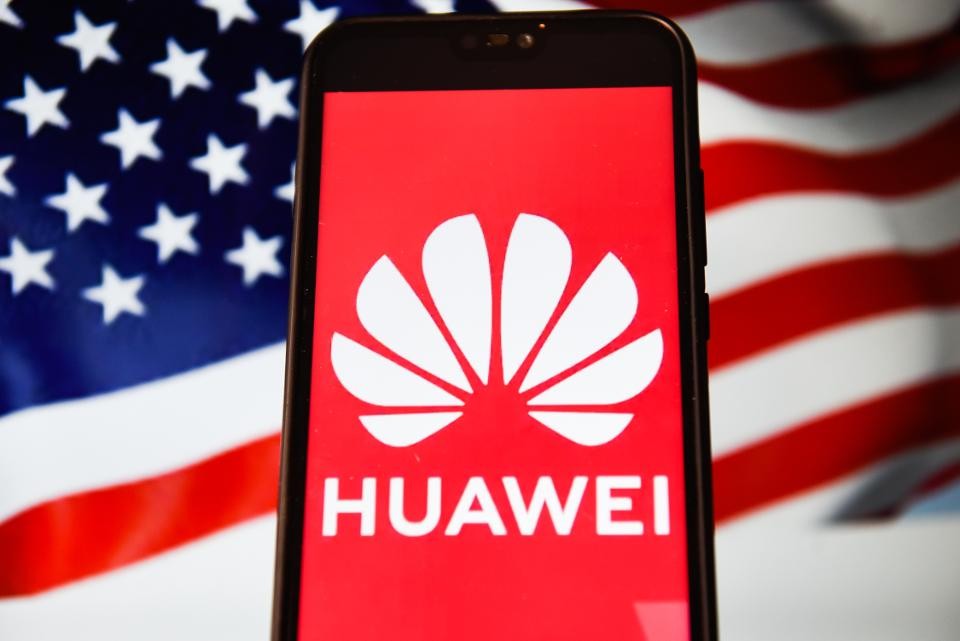Search the Community
Showing results for tags 'trump'.
-
can place your bets now Trump calls for debates with Biden hours after Haley suspends campaign From CNN's Kate Sullivan and Kevin Liptak Former President Donald Trump on Wednesday called for debates with President Joe Biden hours after Nikki Haley suspended her presidential campaign. Trump, who did not participate in any GOP primary debates, has previously said he wanted to debate Biden in the general election. "It is important, for the Good of our Country, that Joe Biden and I Debate Issues that are so vital to America, and the American People. Therefore, I am calling for Debates, ANYTIME, ANYWHERE, ANYPLACE! The Debates can be run by the Corrupt DNC, or their Subsidiary, the Commission on Presidential Debates (CPD). I look forward to receiving a response. Thank you for your attention to this matter!" Trump posted on Truth Social. Biden's campaign responded, saying it’s a conversation they will have “at the appropriate time" and urged the former president to watch Biden's State of the Union address on Thursday. "I know Donald Trump's thirsty for attention and struggling to expand his appeal beyond the MAGA base -- and that's a conversation we'll have at the appropriate time in this cycle," Michael Tyler, the campaign’s communications director, said in a statement.
- 109 replies
-
- 5
-

-
.png)
-
- america
- presidential election
-
(and 2 more)
Tagged with:
-
Facebook Removes Accounts With AI-Generated Profile Photos Facebook on Friday removed what it called a global network of more than 900 accounts, pages, and groups from its platform and Instagram that allegedly used deceptive practices to push pro-Trump narratives to about 55 million users. The network used fake accounts, artificial amplification, and, notably, profile photos of fake faces generated using artificial intelligence to spread polarizing, predominantly right-wing content around the web, including on Twitter and YouTube. Facebook’s investigation connected The BL to The Epoch Times, a conservative media organization with ties to Chinese spiritual group Falun Gong and a history of aggressive support for Donald Trump. Ostensibly a US-based media organization, The BL network’s pages were operated by users in Vietnam and the US, who Facebook says made widespread use of fake accounts to evade detection and funnel traffic to its own websites. It represents an alarming new development in the information wars, as it appears to be the first large-scale deployment of AI-generated images in a social network. https://www.wired.com/story/facebook-removes-accounts-ai-generated-photos/#intcid=recommendations_wired-right-rail-popular_b5c81ee4-f065-4e23-81be-216273db9d3f_popular4-1 In below, the left, admins for “Patriots for President Trump,” nine out of 15 of which used AI-generated faces, researchers said. On the right, admins for “President Trump KAG 2020," eight out of 16 of which are fake faces, according to a report...
- 17 replies
-
https://www.forbes.com/sites/zakdoffman/2019/11/11/huawei-has-defied-trumps-blacklist-so-what-happens-now/#1f4d92d17336 Huawei Has Defied Trump’s Blacklist: So What Happens Now? Zak Doffman Contributor, Cybersecurity Back in May, when U.S. President Trump stripped Huawei of its U.S. supply chain, the company’s short to medium term future looked bleak. The blacklist was aimed at 5G networking equipment, but it was Huawei’s consumer goods business that seemed to be hit hardest. Huawei execs forecast billions in lost revenue as CEO Ren Zhengfei talked survival: “It's good enough for us to just survive,” he told Bloomberg in May, “you can come back to interview us in two or three years and see if we still exist.” Fast forward six months, though, and it’s all change. “Huawei defies the odds to lead the global telecoms market after 180 days on the U.S. trade blacklist,” announced a South China Morning Post headline on November 8. “Performance,” it reported, “that has defied early predictions that it would stumble under the U.S. trade ban.” And this isn’t a slant on the truth—with this story, there are no rose-tinted spectacles in sight. Far from losing the hard-fought number two slot for global smartphone sales it won from Apple last year, Huawei has continued to grow, leaving Apple further behind and chasing down Samsung for the global crown. This year, the blacklisted company has shipped 200 million smartphones 64 days faster than it managed in 2018—pre-blacklist. Huawei targeted 2020 as the year it would overtake Samsung. It remains on course to do exactly that. Samsung is no slouch—according to Canalys it posted annualised growth of 11% in the third quarter this year—Huawei, though, hit 33%. So all good on the consumer front, but what about sales of 5G networking equipment. Well, despite the blacklist, Huawei still leads the world. In the first quarter of 2019, despite a relentless U.S. campaign against the company, Huawei’s market share was 28%. During the following quarter in which the blacklist was put in place, this increased to 29%. Second-placed Nokia remained a distance behind, at around 16%. Worse for the U.S., Reuters reported that half of Huawei’s 65+ 5G contracts are in Europe—the primary international battleground between Washington politicians and Shenzhen execs. A recent EU report warned of the dangers associated with a dominant 5G player from an authoritarian regime. But the two key battlegrounds, Germany and the U.K., remain undecided and could still opt for Huawei. If that happens, it is likely that other markets around the world will follow suit. If key markets, especially the U.K., allow Huawei into their networks, it undermines the U.S. case considerably. So what went wrong with the U.S. campaign? In a word—China. Huawei’s domestic market has pulled hard enough to make all the difference. Huawei’s overall growth was strong, but its performance in China was exceptional—a 66% increase catapulting the company to a 42% market share. The company is chasing down an extraordinary 50% market share of the world’s largest smartphone market—a market that has been a recent nightmare for both Apple and Samsung as they struggle to compete. Huawei eased past the $100 billion revenue mark last year for the first time, after a decade of uninterrupted growth. Against the odds, it looks set to do the same this year. There are three allegations behind the U.S. campaign against Huawei. The first that the company will facilitate espionage or data theft at the behest of China’s intelligence agencies if asked. The second that the company receives state subsidies at the expense of non-Chinese competitors. And the third that its technologies have been used to help suppress China’s ethnic minorities, most notably the Uighurs in Xinjiang. Underpinning Huawei’s defense against U.S. claims has been a carefully orchestrated media campaign that was underway before the sanctions were in place. Back in February, at the flagship Mobile World Congress event in Barcelona, Huawei hit back at the U.S. in front of its industry peers. The company’s chairman Guo Ping used a keynote speech to remind the world about the cybersecurity controversies emanating from the U.S. entered around the Edward Snowden revelations. As I wrote at the time, the approach has “all the hallmarks of a carefully orchestrated line of defense that has been in the works for some time—and it’s a very good one.” In short, that campaign hasn’t stopped since. We have seen a new transparency from Shenzhen, open access to the once reclusive CEO, an open-door policy at HQ, a growing team of Western media and PR professionals drafted in to shape the messages and manage the media. And those messages have focused on innovation, investment, legacy, history and performance. All underpinned by trust, loyalty and consistent denials of any security wrongdoing. Behind all this has been a darker message, though. Essentially Huawei is offering the world a choice. Take the U.S. line, swallow its tech dominance through the likes of Google, Apple, Microsoft, Amazon, Facebook and Qualcomm. Or push back, don’t take it all at face value, and support this leading non-U.S. player as it carves out a new way. The messaging around a replacement for Android itself or a replacement for Google Mobile Services aligns with this. The world’s consumers don’t want to move from Google, but in truth no company has offered them a viable alternative in a decade. Huawei has ridden out the storm. Between its 5G contracts and its smartphone market position it is well protected for another 12-18 months, with perhaps another 10% market share in China on offer to offset any slowing non-China sales. Beyond that, there are one of two paths open to the company. Either Google (and the others) will be returned under Commerce Department licenses, in which case the company will be even stronger, even more of a threat to its competition. Or the blacklist will hold, in which case the company will invest in Huawei Mobile Services and in an app ecosystem to wean millions to its new third way. Unless there is a significant change in the U.S. stance, this analysis on Huawei will continue back and forth. And the more the company is seen to ride out its sanctions, the more likely the U.S. will trade away more restrictions for trade talk benefits while they still carry some weight. Meanwhile, behind the scenes, U.S. tech giants continue to lobby for a return to business as usual. What is certain, is that there was no expectation that Huawei would field the first six months of its blacklist as well as it has. For the U.S. to campaign this strongly against a commercial enterprise is unprecedented—the result of that campaign, though, is arguably even more so.
-
WASHINGTON: US President Donald Trump on Tuesday (Jan 6) signed an executive order banning transactions with eight Chinese software applications, including Ant Group's Alipay, a senior administration official said, escalating tensions with Beijing before President-elect Joe Biden takes office this month. The order, first reported by Reuters, tasks the Commerce Department with defining which transactions will be banned under the directive and targets Tencent Holdings's QQ Wallet and WeChat pay as well. The move is aimed at curbing the threat to Americans posed by Chinese software applications, which have large user bases and access to sensitive data, the official said. The order released by the White House names "Alipay, CamScanner, QQ Wallet, SHAREit, Tencent QQ, VMate, WeChat Pay, and WPS Office". A US official noted the order gave the Commerce Department 45 days to act but the department plans to act before Jan 20 when Trump leaves office to identify prohibited transactions. Any transactions prohibited by the Trump administration are likely to face court challenges as the Commerce Department did when orders barring transactions with WeChat and TikTok were blocked by federal judges. Another official said the order mirrors earlier Trump actions against Chinese-owned apps WeChat and TikTok seeking to block some transactions that have been blocked by US courts. US Secretary of Commerce Wilbur Ross said in a statement he supports Trump's "commitment to protecting the privacy and security of Americans from threats posed by the Chinese Communist Party". source: https://www.channelnewsasia.com/news/business/trump-signs-order-banning-china-payment-app-transaction-alipay-13901962
-
The cost of running as president candidate
- 4,342 replies
-
- 1
-

-
- miss universe
- mexico
-
(and 4 more)
Tagged with:
-
Fartgate
- 46 replies
-
- 3
-
.png)
-

-
- donald trump
- donald
-
(and 3 more)
Tagged with:
-
South Korean President Moon Jae-in -- who accompanied Trump to the heavily-guarded frontier -- said "for the first time in history the leaders of the US and North Korea will be standing face to face in Panmunjom," the border village in the DMZ. https://edition.cnn.com/2019/06/29/politics/kim-jong-un-donald-trump-dmz-north-korea/index.html
-
http://www.bbc.com/news/world-asia-41078187 Just as it seems that things are starting to cool off, Mr. Kim decided to launch another missile over Japan this morning.








